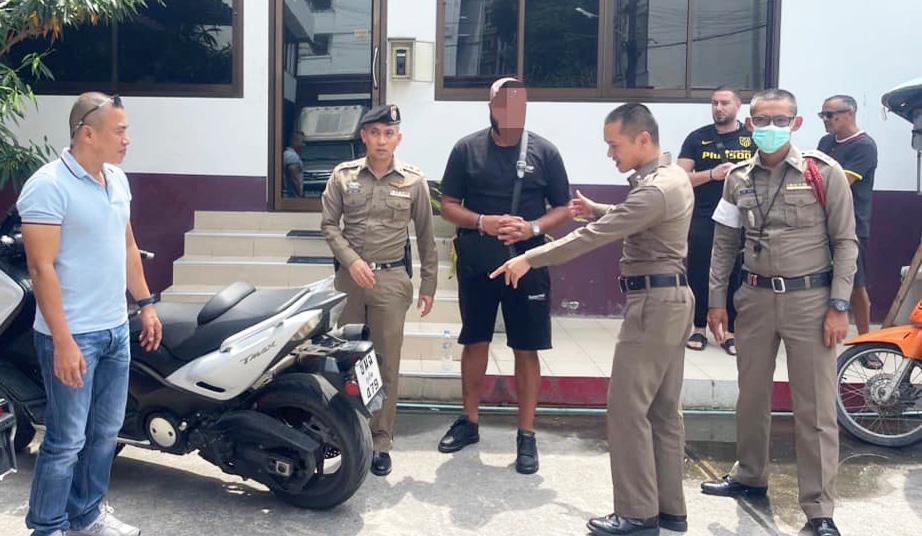
2 minute read
‘Public nuisance’ spurs crackdown
Continued from page 1
...that it causes trouble to society, we will give them an official warning. The standard is that whatever affects the peace of living of local people as well as other tourists is prohibited,” he explained.
Advertisement
“Phuket is Thailand’s first and only province with this regulation. Once a foreigner is designated a yellow card, the foreigner can remain in Phuket until the current stay is complete or choose to travel or move to other provinces,” Col Thanet noted.
“Those who receive a red card can return to Thailand and Phuket, but this will be relevant to the offences they committed. However, it would be ‘more difficult’ [sic] for them if the immigration officer at the airport finds the record of a red card in the system,” he said.
Col Thanet did not explain what “more difficult” would entail, including whether the foreigner would be refused entry at the airport.
“The purpose of creating the yellow and red cards is to strengthen the laws in Phuket and to warn foreigners if their behaviour causes trouble to society,” he said.
Col Thanet did not clarify whether a court verdict was necessary for a card to be issued, or whether a law-enforcement officer pressing a minor charge was sufficient.
He did say that some burden of proof would be required.
“The behaviour needs to be proven whether it really was disturbing the public,” he said.
“The Immigration Bureau is authorised to allow the length of stay for each visa considering the behaviour in the record, so the yellow card and red card system will help make foreigners respect Thai law more,” Col Thanet said.
“Immigration must offer services and accommodate foreigners while also maintaining the security of society. We have to balance the two sides,” he said.
According to Col Thanet, Phuket Governor Narong Woonciew supports the initiative.
“From social topics that foreigners behave inappropriately and disrespect Thai law, the law enforcement must be done concretely to make Phuket safe by designating yellow and red cards to foreigners to behave well and not cause trouble to others,” Col Thanet cited the Governor as saying.
“The previous operation already suppressed 20 trouble-maker foreign motorcyclists. Three of them were designated with yellow cards and the rest have already flown back to their home countries. Phuket Immigration has also filed the case with their embassy,” he said.
Col Thanet last week travelled to Bangkok to ask Pol Lt Gen Pakpoompipat Sajjapan, Commissioner of the Immigration Bureau nationwide, to make the ‘red card’ system introduced in Phuket national. At time of press, the results of that meeting had yet to become public.
Usual Arrests
The press conference last week proudly announced the arrests of foreigners caught breaking the law under the ‘Phuket Crime - Free’ campaign.
Present for the event were a host of high ranking officials from local government offices, including from the local transport, labour and even education offices. Phuket Vice Governor Anupap Rodkwan Yodrambam was present as the leading provincial administration figure.
Phuket Provincial Police Commander Maj Gen Sermphan Sirikongwas also present, but oddly not even named as present by an official report of the event.
The press conference focussed on highlighting what action police had taken against foreigners, assuring that the arrest of such foreigners was of paramount importance to the safety of people on the island and for the preservation of Phuket as a world-class tourism destination.
While scant on details, it was confirmed that a “foreign man” had been arrested on an “Interpol red notice” as he was wanted by the French authorities. Only a day earlier did immigration police announce the arrest of a Swedish man in Phuket wanted on a Red Notice for the production of narcotics “in a foreign country”, but no immigration officers have confirmed whether the two cases were actually the same one.
Also touted was the arrests of two Russian suspects for a robbery involving cryptocurrency, and the




